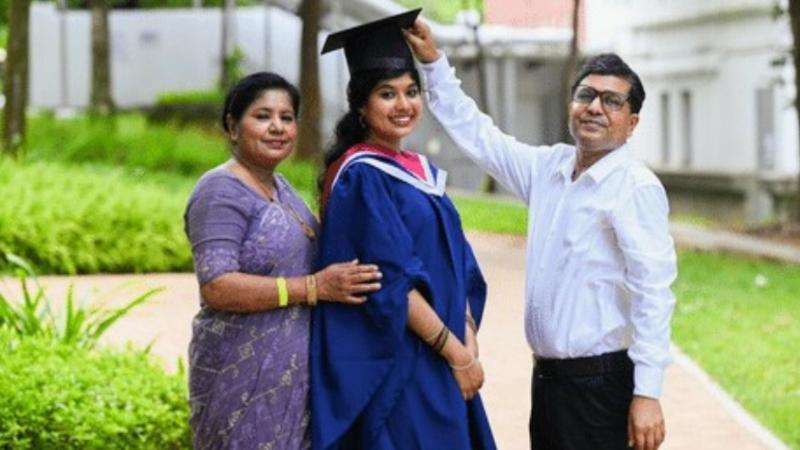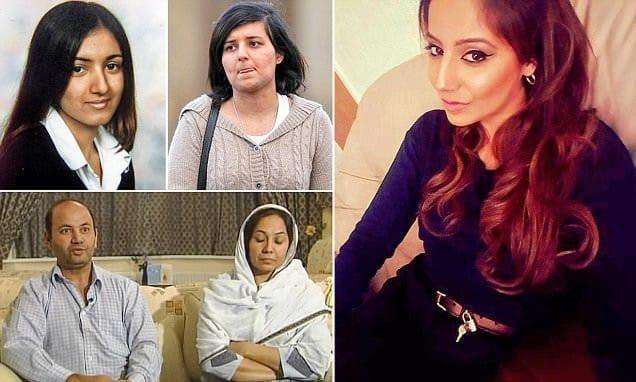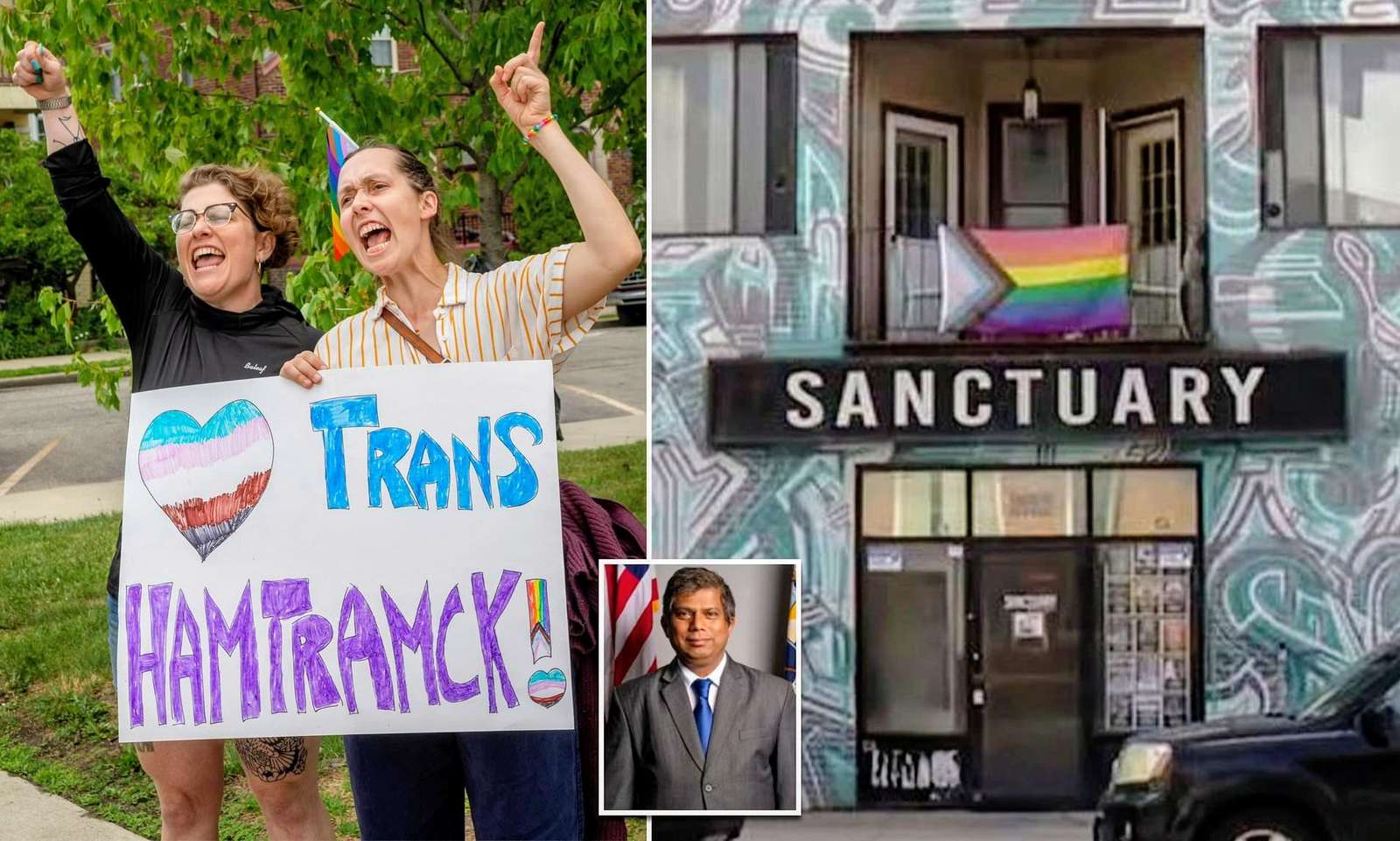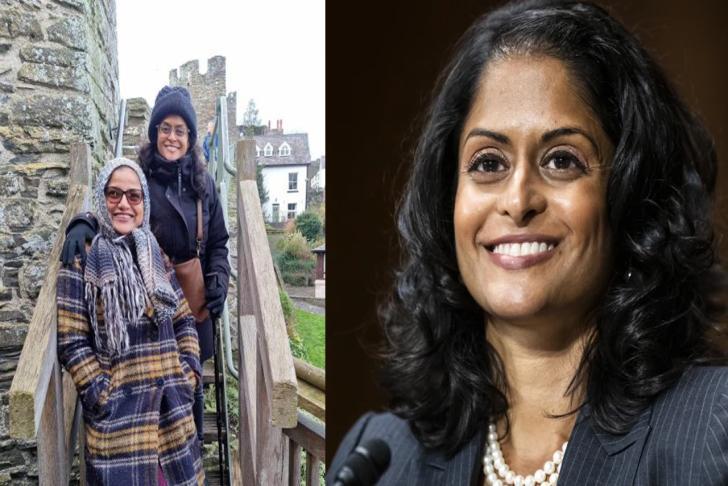Central Eye slip Federal Plaza in New York. The grand ceremonial courtroom of the United States Federal Courthouse. The towering height from the floor to the ceiling seems to symbolize the limitless and lofty importance of all the proceedings held in this room. My life partner Apu and I find our reserved seats in the third row and sit down. The long-awaited moment for which we crossed the Atlantic Ocean from distant Manchester to Long Island in the United States has finally arrived. In just a few moments, Apu’s beloved cousin and my dear sister-in-law, Nusrat Jahan Choudhury, will take the oath as the first Muslim woman and the first Bangladeshi American federal judge in the United States.
The courtroom is packed. Friends, relatives, law school classmates, former and current colleagues of Nusrat have traveled from various parts of the world to witness this historic event. Distinguished federal judges are seated on the stage. Among the invited guests in the front row are the Honorable Charles E. Schumer, Majority Leader of the United States Senate, and the Honorable Judge Denise Cote of the Southern District of New York, under whom Nusrat Choudhury’s illustrious journey began a decade and a half ago as a law clerk. After being engaged in various public welfare positions for many years, in 2021, Charles Schumer recommended Nusrat to President Biden for appointment as a federal judge. In January 2022, Joe Biden nominated her as a federal judge, and when that nomination was confirmed in 2023, it brought waves of joy from New York to Bangladesh. Finally, on May 10, 2024, her swearing-in ceremony took place, and I had the good fortune to be present there.
Central Eyeslip Federal Plaza in New York. The grand ceremonial courtroom of the United States Federal Courthouse. The towering height from the floor to the ceiling seems to symbolize the limitless and lofty importance of all the proceedings held in this room. My life partner Apu and I find our reserved seats in the third row and sit down. The long-awaited moment for which we crossed the Atlantic Ocean from distant Manchester to Long Island in the United States has finally arrived. In just a few moments, Apu’s beloved cousin and my dear sister-in-law, Nusrat Jahan Choudhury, will take the oath as the first Muslim woman and the first Bangladeshi American federal judge in the United States.
After Nusrat Choudhury is sworn in by the Honorable Barrington D. Parker, Senior Circuit Judge of the U.S. Court of Appeals, her family – mother Nafisa Choudhury, brothers Arif Choudhury and Saif Choudhury, and husband Mike Earley – jointly help her don the federal judge's robe. Before and after the swearing-in, Judge Pamela K. Chen, former Special Assistant to President Biden Paige Herwig, Senator Charles E. Schumer, Saif Choudhury, American Civil Liberties Union Legal Director David Cole, and many others speak about Judge Nusrat Choudhury's glorious achievement.
Listening to the speeches of these distinguished individuals holding highly significant positions in the United States, I realize that the Nusrat we know – the Nusrat who is our daughter, our relative, our family's and our nation's pride – is indeed a much greater person than we had ever imagined. Judge Chen remarks that nearly 235 years after the Judiciary Act of 1789 established the U.S. federal court system, Nusrat becomes the first Muslim woman or Bangladeshi American to be appointed as a federal judge, making her truly a part of history.
In 2006, within the same year, Nusrat earned a Master's in Public Administration from Princeton University and a Juris Doctor from Yale Law School. From 2006 to 2008, she worked as a law clerk for Judge Denise Cote and Judge Barrington D. Parker. For over a decade, she served as a staff attorney for the National Security Project and the Racial Justice Program of the American Civil Liberties Union, and later as the Legal Director of the organization.
Senator Charles Schumer aptly says that a judge must possess impartiality, an open mind, and complete mastery over complex legal issues, and Judge Nusrat is precisely the kind of person who can aptly fulfill this significant responsibility. He points out that although she could have earned a substantial income after passing the bar, she chose instead to work for the welfare of people. She has worked for veterans and immigrants, and collaborated with law enforcement to improve policing across various cities in the country. Schumer adds, "She dedicated her career to protecting the rights of the downtrodden and making sure that all people – from the privileged to the impoverished – can have their voices heard." He also says that the Bangladeshi community is one of the fastest-growing, most vibrant, and remarkable communities in New York, and he hopes and believes that many more from this community will follow in Nusrat’s footsteps.
What touches me the most is Schumer's respect for Nusrat’s family. No one hesitates to comply with his request to give a round of applause to her family. Amidst the thunderous applause that nearly drowns out Schumer's words, a few sentences resonate sweetly in my ears: "We all know that without the support of loved ones, no one can reach this position." "This family is a shining example of the American dream." "For two generations, this family has been breaking glass ceilings."
Schumer's remarks are apt. Nusrat’s father, Dr. Noor Rahman Choudhury, was the first Bangladeshi to come to the United States on a Fulbright Travel Grant. Nusrat’s mother, Nafisa Choudhury, is also a successful working woman who has worked for the Public School Food Service for nearly two decades. However, Schumer’s brief speech perhaps did not allow him to mention Nusrat’s extended family. Nusrat’s roots lie in a family from Bangladesh with a long-standing tradition of social service and human welfare. The Choudhury family of Bagdubi village in the Dagonbhuiyan subdistrict of Feni district is well-known as an esteemed family. Nusrat's grandfather, Mostafizur Rahman Choudhury, played a pioneering role in establishing various schools, colleges, and mosques in the greater Noakhali district. The family is still actively involved in running the "Nurjahan Ajmat Choudhurani Girls' High School," "Banipur Government Primary School," and a mosque established by this family in Bagdubi village. Nusrat's uncle, my father-in-law, Mujibur Rahman Choudhury, founded the Human Welfare Society, which has been providing long-term services to countless underprivileged people in Feni district. Although he is no longer alive, the organization, driven by the initiatives of his followers and supported by his children, continues to be engaged in public welfare.
In conversation, Nusrat shares her thoughts with me. She hopes that her experiences will inspire people from all nations, especially Bangladeshi girls and women, to pursue education, work hard, and acquire the skills necessary to serve their country by holding significant roles like that of a federal judge. Looking at Nusrat, I am reminded of Martin Luther King Jr.'s famous "I have a dream" speech. Today’s achievement of Federal Judge Nusrat is the fruit of the sacrifices and perseverance of countless individuals nurtured by that dream.
After the swearing-in, as she dons the judge's robe and takes her place on the stage among other federal judges, I look at Nusrat with deep respect. I think of how many times I have walked with her, eaten with her, laughed until I cried, and embraced her, and it sends shivers down my spine. My sweet little sister-in-law Nusrat, yet as a person, her true stature is beyond my ability to measure. Looking at Apu, I see tears of joy and pride glistening in his eyes. I feel tears rolling down my own cheeks. For me, this is not just a matter of family or national pride. As a writer who fights for the equal rights of women and all marginalized people, this is an ideological victory, the ultimate empowerment of a very close woman, who will inspire countless other women to attempt the impossible. Like Martin Luther King Jr., I too have a dream – I have a dream too!




_3.jpg)



.svg)

_2.jpg)

_2.jpg)